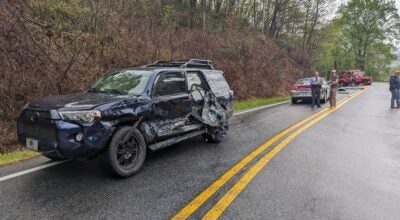Volunteers speak out about problems with EMS
Published 9:43 pm Thursday, January 24, 2013
Maintaining training
Training opportunities have remained limited, according to several volunteers and Commissioner Gage, but Owens said that allegation is false.
“The allegation that there have been lack of training opportunities on Mr. Gage’s part is categorically false,” said Dr. Owens.
To maintain certification first responders are required by the state to participate in 24 hours of continuing education a year. Dr. Owens said Polk County also requires open-book monthly protocol reviews, which she said take 10-15 minutes. County responders are also required to take 16-hours in ITLS (trauma training) and PEPP (pediatric evaluation) certification. She said recertification of these must be maintained through an eight-hour course every three years.
Edwards said training has been one of the biggest issues.
“They’d tell everyone one thing and in a few months they would change it,” he said.
Gregg said he believes the first faltering part of the system’s training program is that many volunteers have been given conflicting information about what training hours they actually need to stay certified.
“I’ve been told in years past that I didn’t have enough training hours, but when I carried in my documentation it showed 320 hours,” Gregg said.
He said finding a time to attend training within your work schedule is also difficult for many volunteers who work full-time jobs. He said the system offered two 12-hour training blocks last year. He said the majority within the system voted to do those blocks on weekends, which didn’t work for everyone. He said he also feels like online training should be accepted through an accredited program.
Dr. Owens said Halford has bent over backwards to schedule training on nights and weekends, as well as setting up individualized training.
Gregg said this year more training options are planned. He said the aim is for monthly training options to be held.
“This year it’s more accommodating than it was in the past,” Gregg said. “We’re trying to move in the right direction but it could be a lot easier.”





